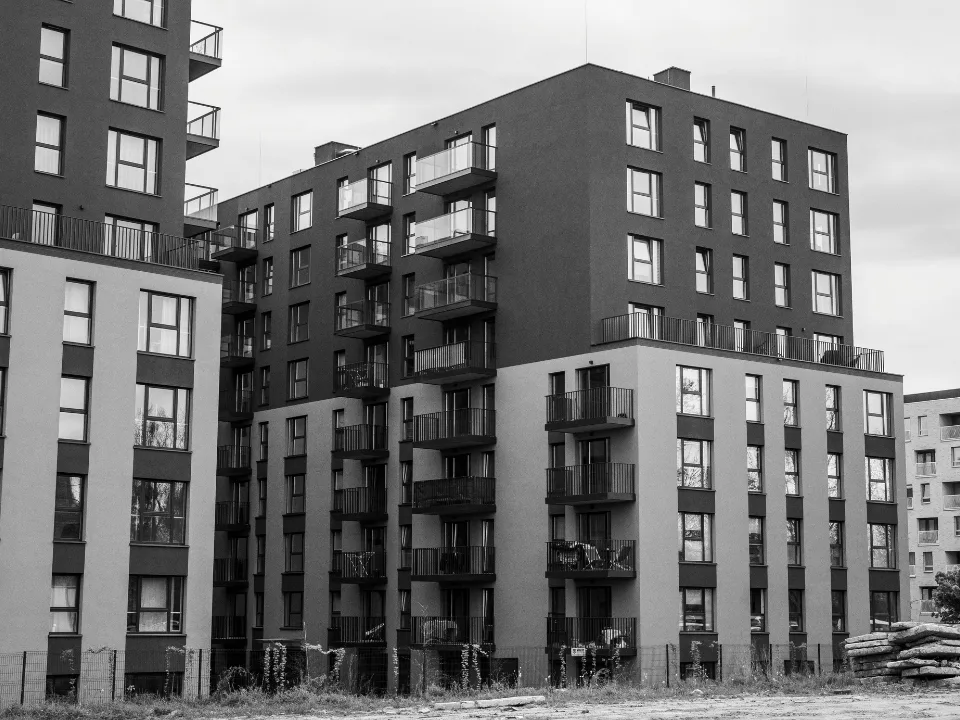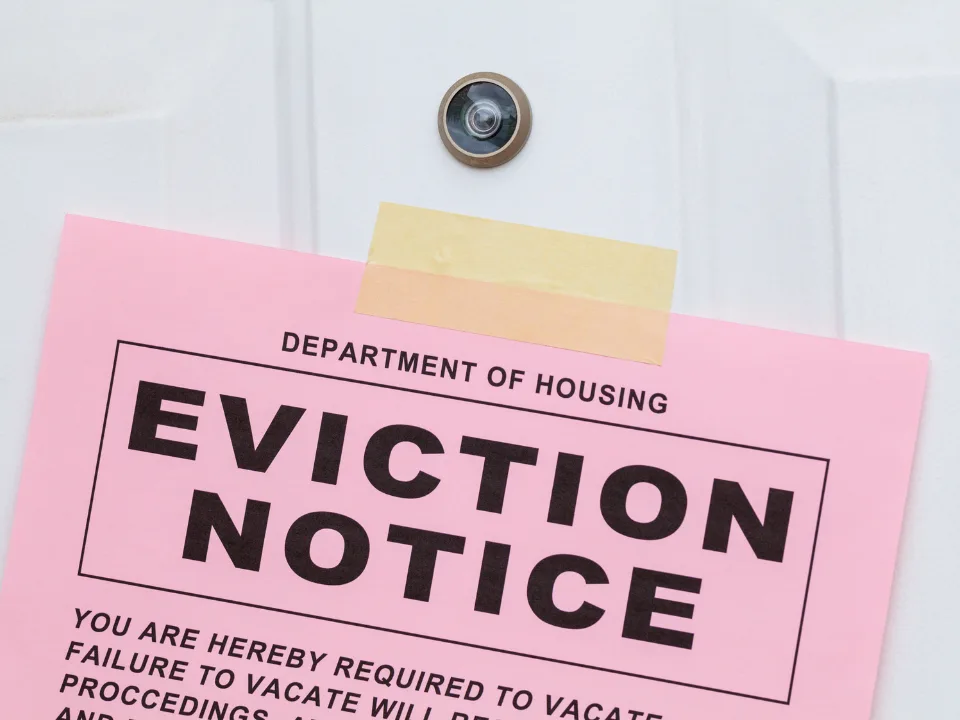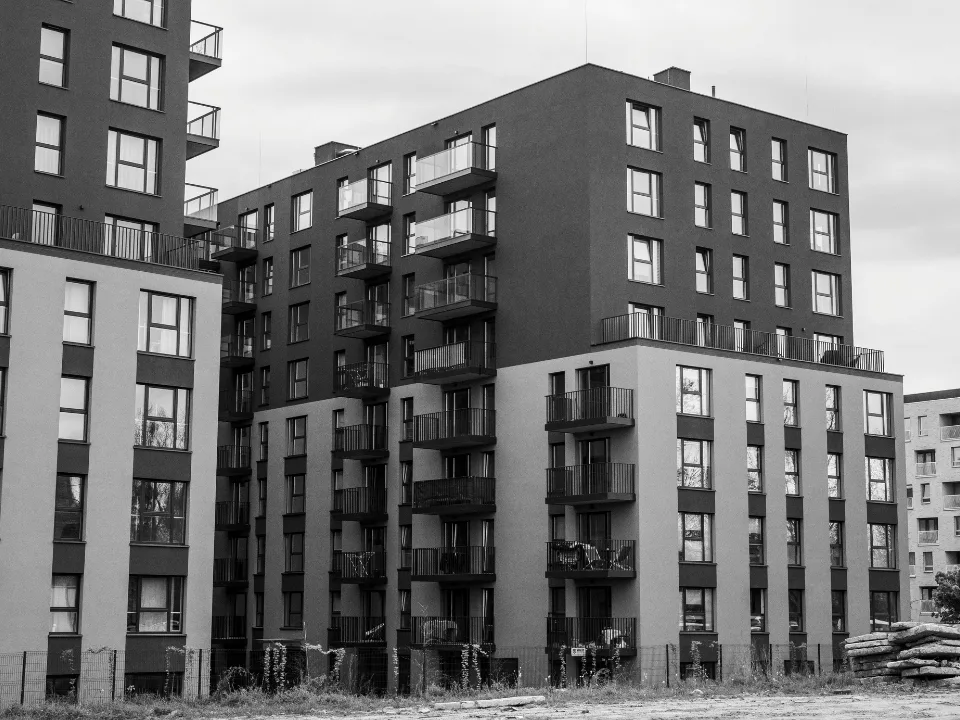FDIC Struggles to Unload $12.7B in Troubled Bank Assets
The FDIC is struggling to sell $12.7B in mortgage-backed securities (MBS) from failed banks like Silicon Valley and Signature.
Together with
Good morning. The FDIC wrestles with offloading $12.7B in MBS from collapsed banks. California strengthens housing legislation, boosting multifamily development. Meanwhile, the lack of office-to-residential projects prompts inquiries about hurdles confronting developers.
Today’s issue is brought to you by BetterPitch. Focus on your deal, not your deck.
👋 First time reading? Sign up here
Market Snapshot
|
|
||||
|
|
*Data as of 9/14/2023 market close.
FIRE SALE
FDIC Struggles to Unload $12.7B in Troubled Bank Assets
The FDIC is struggling to sell $12.7B in mortgage-backed securities (MBS) from failed banks like Silicon Valley and Signature. These troubled assets, tied to low-rate fixed interest, have lost value due to rising market rates.
Risky portfolios: The FDIC recently announced the sale of a $33B CRE loan portfolio from Signature Bank’s recent failure. However, a Bloomberg report indicates that $12.7B in MBS linked to Silicon Valley and Signature are struggling to attract buyers due to the same issues that contributed to the bank’s failure: the declining value of MBS assets tied to low-rate fixed interest as market rates keep rising, causing existing bond prices to drop.
No takers? Bond investors expressed concerns about a potential FDIC fire sale in April, worried that releasing too many assets could disrupt supply and demand dynamics. Two banks that previously acquired assets from the failed banks opted not to take on what was then seen as risky bond portfolios. The failed banks made substantial investments in MBS, CMO, and CMBS bonds during a period of significant deposits from the crypto and tech sectors, aiming to generate profits with low yields but faltering due to a lack of hedging.
Unpopular loans: Nearly $13B in MBS were linked to Ginnie Mae project loans, which have grown increasingly unpopular due to their expected lower returns than alternative investments. These loans have extended maturity timelines, spanning decades, and impose substantial penalties for refinancing within a decade, as they are designed for low- to moderate-income households.
➥ THE TAKEAWAY
Exploring sale strategies: There are discussions about potentially slashing prices to boost sales or morphing the debt into more intricate financial tools. Yet, it remains to be seen if such tactics would substantially enhance market appeal since the foundational mortgages would not yield additional revenue. The goal could be to diversify the securities in hopes of achieving a more favorable aggregate price.
TOGETHER WITH BETTERPITCH
Focus on your deal, not your deck
BetterPitch is the leading pitch deck design agency that helps you close more deals. From raising a fund to upgrading your investor updates, BetterPitch has you covered.
With in-house analysts and designers, BetterPitch conducts all market research, copywriting, and design of your deck. With a primary focus on private equity, BetterPitch guarantees institutional-grade presentations, saving clients time and maximizing their potential returns.
Exclusive offer for CRE Daily subscribers: BetterPitch is offering CRE Daily subscribers priority for crafting a corporate overview pitch deck to showcase their track record and investment strategy to capital partners.
*Past performance is not indicative of future results. This post contains sponsored content.
HOUSING BOOST
California Legislature Approves Bill Boosting Multifamily Housing Development

Senate Bill 423 would extend by a decade a state housing law set to expire in 2026 that lets developers skip through much of the bureaucratic process (LA Times)
California lawmakers approved Senate Bill 423 to extend a decade-long housing law, allowing developers to bypass bureaucratic processes for multifamily projects in cities falling behind state-mandated housing goals.
The Controversial Housing Law: Initially introduced in 2017 and set to end in 2026, the controversial Senate Bill 35 has now been extended by a decade by California lawmakers. The law, which aims to reduce bureaucratic challenges, facilitates quicker development of multifamily housing projects. Importantly, this applies only to cities lagging in achieving the housing goals set by the state.
The New Proposition – SB 423: A companion bill, SB 423, was approved, intending to further extend the expiration date of the housing law by 10 more years. Governor Gavin Newsom is now presented with the choice to either sign or veto it by Oct. 14. Sen. Scott Wiener, the author of both bills, commented on the effectiveness of SB 35 in driving affordable housing development, emphasizing the importance of extending this crucial law.
Concerns & Amendments: However, the extension hasn’t been without its detractors. Some labor unions, like the State Building and Construction Trade Council of California, express concerns about the protection of construction workers under the law. Environmental groups have also raised alarms about construction in specific high-risk zones. To address these worries, amendments were made to SB 423 over recent months.
Local Governments’ Resistance: Many cities, especially in Los Angeles County, oppose the bill. They believe it could allow the state to override local building stipulations. The League of California Cities emphasized that this bill and others could limit local authority on land use, reduce community input, and authorize the California Department of General Services to sanction housing on state-owned lands. Wealthy coastal cities might see an influx of new multifamily housing developments if the expanded law takes effect.
➥ THE TAKEAWAY
Building dreams: Senate Bill 423 represents a significant step toward alleviating California’s housing shortage, even though it faces opposition from some labor unions and environmental groups. Its passage underscores the ongoing efforts to prioritize affordable housing construction in the state, although more comprehensive solutions are required to meet the long-term housing needs of California residents.
🌐 AROUND THE WEB
📖 Read: An analysis reveals significant differences between current market values and appraisal-based valuations in real estate, especially in the office and apartment sectors.
▶️ Watch: Jonathan Litt, Founder & CIO of Land and Buildings, joins ‘Fast Money’ to share his concerns about upcoming challenges for commercial real estate stocks.
🎧 Listen: On this episode of Eye on AI, host Craig Smith delves into data storage and its ties to AI. With insights from Raul Martynek, CEO of Data Bank, they explore the transformation of data centers and their crucial function in fueling AI advancements.
BRIDGING THE GAP
Why Office-to-Resi Conversions Aren’t Keeping Pace with Demand

Only 217 office-to-resi conversion projects are in the immediate pipeline for completion, the Deloitte study shows (Getty Images)
In the aftermath of the pandemic, there’s been a remarkable shift to hybrid and remote work, leading to a surge in office vacancies. However, it raises the question: why are only 217 office-to-residential conversion projects planned in the U.S.?
Vacancy crisis: As remote and hybrid work models become the norm, a staggering 1BSF of office space could be vacant by 2030, almost 1.5x pre-pandemic levels. Office vacancy rates are currently at a 30-year high, standing at around 18%, which raises the question of whether this high vacancy will persist in the long term or decrease as the economy improves and occupiers resume leasing office space.
The multifamily solution: With a structural housing shortage of around 2M units in the US, experts believe converting vacant office spaces into multifamily residential units is a potential solution. Studies by CBRE and Deloitte suggest that office-to-resi conversions are expected to continue as cities offer tax abatements and credits. However, since conversions are costly and complicated, only 217 conversion projects are in progress, falling far short of the immense need.
The role of incentives: To encourage more conversion projects, cities must offer incentives to make the numbers work. Boston, Chicago, DC, and cities in California have introduced tax incentives, abatements, and financing options for converting office buildings into residential units. While these programs provide significant financial benefits, tight project timelines may pose challenges for potential developers.
➥ THE TAKEAWAY
Complex conversions: While the potential for office-to-residential conversions to alleviate the housing shortage and office space glut in the US seems obvious, the reality is these projects are complicated and expensive. To fully realize benefits, more cities need to offer significant incentive programs to offset costs and show a long-term commitment to addressing the changing needs of urban spaces.
✍️ DAILY PICKS
-
Hotel debt dilemma: Commercial real estate faces rising debt maturities and tough refinancing due to high interest rates. U.S. hotel owners, with inconsistent incomes, are especially vulnerable, weakening at a critical time.
-
Kickback scheme: After a six-year legal dispute, a leading global mattress retailer has resolved its lawsuit against two ex-executives and a former Colliers Atlanta retail broker.
-
Property sale: Greysteel facilitated the sale of El Sol del Lago, a 320-unit garden-style residential property in El Paso. At sale time, the property had a 98% occupancy rate.
-
Manhattan transformation: While state plans for skyscrapers around Penn Station falter and ambitious housing initiatives stall in Albany, Mayor Eric Adams could reshape a significant part of NYC.
-
Luxury leasing: Luxury retailers in the U.S. saw a significant leasing increase last year, with 40% occurring in malls. The surge is attributed to expanding stores in Sun Belt cities, in response to the booming demand for high-end products.
-
Costs of construction: The life sciences sector is grappling with severe material shortages, causing lead times to stretch from four weeks to two years for essential components.
-
Park Avenue deal: Joe and Jacob Chetrit are acquiring the $35 million luxury property at 1009 Park Avenue in Manhattan’s historic district, as per Commercial Observer.
-
Inflation spike: August’s wholesale inflation surpassed expectations with a 0.7% monthly rise, the largest since June 2022, as reported by the U.S. Department of Labor.
-
REIT outlook: After a tumultuous first half of 2023, Fitch has downgraded its REIT sector outlook from neutral to deteriorating due to tighter commercial real estate lending amidst U.S. banking strains.
-
Bull run: Brooklyn’s 2023 investment sales have grown, with a 35% rise in Q2, totaling $1.49 billion from 281 deals.
-
MF1 foreclosure: A prominent multifamily lender has foreclosed on a Houston complex with a winning bid of $50 million.
📈 CHART OF THE DAY
The US is set to finish 2023 with over 460,000 new apartment units, marking a record high as per RentCafe. This includes 33,000 units in the New York Metro area. The past three years have witnessed the delivery of 1.2 million units, highlighting the largest disparity between single-family and apartment construction in nearly half a century.
What did you think of today’s newsletter? |
📣 HIT THE INBOX OF 65K+ CRE PROFESSIONALS
Advertise with CRE Daily to get your brand in front of the Who’s Who of commercial real estate. Subscribers are high-income decision makers, investors, and C-suite executives. For more information, please email [email protected]. The Battle Over Rent-Setting Software





















